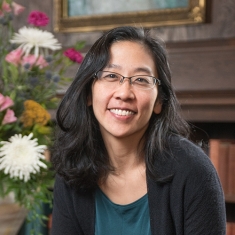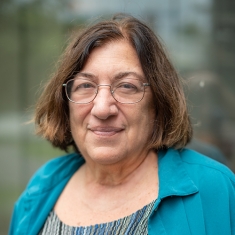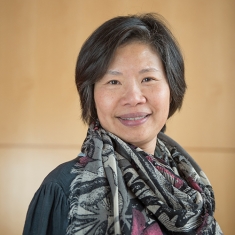Translation Studies Concentration

Saint Jerome, scholar credited with translating the Bible into language the public could understand.
Translation is that space where language, culture, history, politics and incommensurable difference all collide and sometimes cohere to make sense. At a time of intensive globalization, when cultures and languages seek common understanding, translation is an indispensable discipline.
Announcements
Volunteers Needed
Amherst Public Schools is seeking adult volunteers who speak Portuguese, Spanish, Korean, German, Chinese, Hebrew and Vietnamese. Please contact Sylvia Fisher, fishers@arps.org.
Information About the Concentration
For information about the concentrations, please join us at the Presentation of the Concentrations. Register to attend.
Students may apply to the Translation Studies Concentration (TSX) during their sophomore year. The concentration accepts up to 15 students per year. Students may count no more than three courses for both the concentration and their major. These courses may be taken within the Five Colleges or abroad. In addition to the required courses below, students must demonstrate capacity (300 or above level) in the foreign language from which they translate.
WLT 150: The Art of Translation
(2 credits)
We hear and read translations all the time: on television news, in radio interviews, in movie subtitles, in international bestsellers. But translations don’t shift texts transparently from one language to another. Rather, they revise, censor and rewrite original works, to challenge the past and to speak to new readers. We explore translation in a range of contexts by hearing lectures by experts in the history, theory and practice of translation. Knowledge of a foreign language useful but not required. S/U only
1. Two courses in the language/literature/culture of the foreign language (8 credits)
*(Students whose native language is not English may take courses in English language/literature/culture to satisfy this requirement.)
2. Two courses with a focus on translation theory, translation studies, translation practice, linguistics, or the problems of language (8 credits). Students may take an additional course in their foreign language as a substitute for one of these two courses. At least one course in fulfillment of this requirement must have a central focus on translation.
Two practical experiences are required:
- A minimum of one semester studying abroad or equivalent (for instance, an intensive summer program), in the foreign language and culture. International students may count their study at Smith as their study abroad. In exceptional cases, and with the approval of the advisor and the program director, a second practical experience amounting to at least 100 hours may be substituted for the study abroad requirement.
- An internship or independent research project that focuses on translation/interpretation or cross-cultural issues and that engages the foreign language in a significant way. The practical experience must consist of a minimum of 100 hours of work and be approved by the concentration adviser.
For information about practical experience approval, please see the “Forms” section of the website. Financial support for internships or practical experiences may be available through the Office for International Study's International Experience Grants, Blumberg Traveling Fellowships and the Anita Volz Wien '62 Global Scholars Fund. A number of other grants for specific regions may also be available for students studying or interning abroad or in immigrant communities in the United States.The Lazarus Center for Career Development offers Praxis stipends for unpaid summer internships. There is more information about doing a practical experience via a Praxis stipend in the “Forms” section.
Students document their experiences with an E-Portfolio that will include:
- two detailed language self-assessments
- reflections on your language-learning
- a reflection on how your practical experiences have deepened your understanding of the language and culture you are studying
- a shortened version of the introduction to your final translation project
- a video of your presentation during Collaborations
- any other relevant written, audio, and video materials
View examples of past student portfolios. This link will only work for current Smith students, select "Login with Sibboleth" and enter your Smith username and password.
TSX 330/CLT 330: Translation Across Borders
(4 credits)
The capstone seminar brings together a cohort of concentrators to discuss the final translation project that each student undertakes with the guidance of their mentor in the concentration and to situate the project within the framework of larger questions that the work of translation elicits. The seminar readings will focus on renowned practitioners' reflections on the difficulties and complexities of translating, the obstacles, discoveries and solutions that the translator encounters. We will read a series of essays that engage with the conflicting interpretations and nuances of translations in 14 languages of Ferdinand Oyonos' iconic 1956 African novel, Une vie de boy. We will compare how these translations transform the original novel and question the concept of original text as it interacts with the culture and the language into which it is translated. As part of the capstone seminar, and in consultation with your faculty mentor, you will work on a final translation project (10 pages minimum, depending on the type of translation) with a substantial introduction that reflects on the obstacles, difficulties and successes of the task of translation.
In some cases, an honors thesis that either is a translation or reflects on translation, can be substituted for the capstone translation project.
Advisory Committee
Declaration of Concentration
Students who have been accepted into the concentration and received their adviser’s name need to fill out the
→ Program of Study Declaration Form with the Registrar's Office.
This is the last step in making the concentration official in Workday.
Practical Experience Forms
After discussing the proposed practical experience with their advisers, students need to fill out the corresponding practical experience approval form in order to have the experience count towards the concentration requirements:
- Summer Internship (100 hours or more) → Internship Credit Application
All students undertaking a summer internship of at least 100 hours are eligible to receive academic credit (0.25 credits per experience) that will appear on their transcript. We encourage all students who qualify to apply for internship credit. Students applying for Praxis funding don’t need to fill out this form, and should instead use the “Praxis with Credit” form below. - Unpaid Summer Internship (220 hours or more) → Praxis with Credit Application
All Smith students are eligible to receive a stipend payment for one normally unpaid internship through the Praxis program at the Lazarus Center. These internships must take place during the summer, and must comprise at least 220 working hours. Students in Concentrations are eligible to apply for Praxis a second time– Praxis Plus. When applying for a Praxis internship, the applicant must specify if the internship counts towards a concentration and should fill out the “Praxis with Credit” application. - Study Abroad
Students who fulfilled their Study Abroad requirement should fill out the → Practical Experience Completion Form and check the “Study Abroad” box on the form. - Other Internships and Practical Experiences
Students whose internships do not meet the above requirements because they take place during Interterm, during the school year, or for any other reason, should fill out the following forms.
Prior to starting the internship please fill out the → Practical Experience Approval Form.
Upon completion of the practical experience please fill out the → Practical Experience Completion Form. - Retroactive Credit for an Experience
Students who completed a practical experience relevant to the concentration prior to being accepted into the cohort should discuss the experience with their concentration adviser as soon as possible. Once the experience is approved, students must fill out the → Practical Experience Completion Form and check the “Retroactive Experience” box on the form.
Advising Checklist for Graduation
Students are required to submit a completed Concentration Advising Checklist at the start of their final semester. This form documents the completed components of the concentration requirements, and must be signed by the student’s concentration adviser. Completed form should be sent to the registrar’s office (registrar@smith.edu) and to the administrative coordinator for concentrations (concentrations@smith.edu).
Local
- Metamorphoses: A Journal of Literary Translation
- University of Massachusetts Translation Center
- University of Massachuestts Translation and Interpreting Studies Certificates
- Translations in The Massachusetts Daily Collegian
- Five College Center for the Study of World Languages
National
- American Translators Association
- American Literary Translators Association (ALTA)
- Japanese Literature Publishing Project (JLPP)
Graduate Study
- Certificate in Applied Literary Translation, University of Illinois
- Master of Arts in Language, Literature, and Translation, University of Wisconsin, Milwaukee
- Middlebury Institute of International Studies at Monterey
- Université de Genève, Faculté de Traduction et d'Interprétation
Next application deadline is October 13, 2023
Students who wish to apply outside of the listed deadline should be in touch with the director of Translation Studies.
Applications will be reviewed by the Advisory Committee to determine the feasibility of the proposed course of study in the Translation Concentration along with the your intended or declared major. Accepted students will be assigned to an adviser who will oversee your progress through the program and approve internships.
To complete the registration for the concentration, you need to fill out the Declaration of Concentration form from the Office of the Registrar and have it signed by the director of the Translation Studies Concentration.
Contact
Director of the Translation Studies Concentration: Reyes Lázaro
Administrative Assistant: Veeka Trofimova












